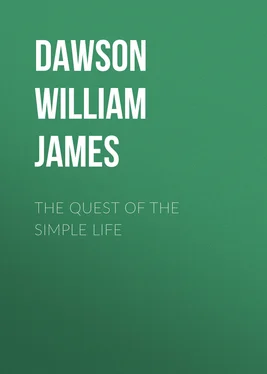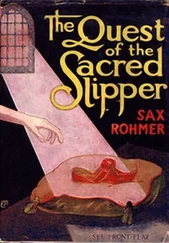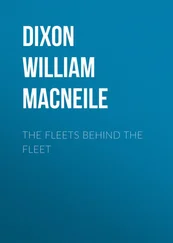William Dawson - The Quest of the Simple Life
Здесь есть возможность читать онлайн «William Dawson - The Quest of the Simple Life» — ознакомительный отрывок электронной книги совершенно бесплатно, а после прочтения отрывка купить полную версию. В некоторых случаях можно слушать аудио, скачать через торрент в формате fb2 и присутствует краткое содержание. Жанр: foreign_prose, foreign_antique, на английском языке. Описание произведения, (предисловие) а так же отзывы посетителей доступны на портале библиотеки ЛибКат.
- Название:The Quest of the Simple Life
- Автор:
- Жанр:
- Год:неизвестен
- ISBN:нет данных
- Рейтинг книги:4 / 5. Голосов: 1
-
Избранное:Добавить в избранное
- Отзывы:
-
Ваша оценка:
- 80
- 1
- 2
- 3
- 4
- 5
The Quest of the Simple Life: краткое содержание, описание и аннотация
Предлагаем к чтению аннотацию, описание, краткое содержание или предисловие (зависит от того, что написал сам автор книги «The Quest of the Simple Life»). Если вы не нашли необходимую информацию о книге — напишите в комментариях, мы постараемся отыскать её.
The Quest of the Simple Life — читать онлайн ознакомительный отрывок
Ниже представлен текст книги, разбитый по страницам. Система сохранения места последней прочитанной страницы, позволяет с удобством читать онлайн бесплатно книгу «The Quest of the Simple Life», без необходимости каждый раз заново искать на чём Вы остановились. Поставьте закладку, и сможете в любой момент перейти на страницу, на которой закончили чтение.
Интервал:
Закладка:
The man seemed so satisfied with everything about his life that it was a kind of joy to meet him. The sourness of my own discontent was dissolved in the alembic of his joviality. Yet it was certain that he lived a life of the most torturing anxiety. There were recurring periods when his fortune hung in the balance, and his financial salvation was achieved as by fire. When he sat silent for a moment, strange things were written on his face. Haggard lines ran across the brow; the hollows underneath the eyes grew deep; and one could see that black care sat upon his shoulders. There was a listening posture of the head, as of one apprehensive of the footfall of disaster, and though he was barely forty, his hair was white. What happened to him finally I do not know. I missed him for a year or two; inquired at the hotel where he had lived and found him gone; and I thought I read in the sarcastic smile of the hotel-manager more knowledge than he was willing to communicate. I imagine that he went down in some financial storm, like ships at sea that are heard of no more; the Napoleon of finance had somewhere found his Waterloo. The reflection is inevitable; what had he got out of life after all? He had won neither peace nor honour; he had known nothing of the finer joys or tastes; he had enjoyed no satisfying pleasures; such triumph as he had known had been the brief triumph of the gambler. Upon the whole I thought the narrow tedious life of Arrowsmith the worthier.
Reflections of this nature are usually attributed to mere envy or contempt of wealth, which is a temper not less sordid than a love of wealth. For my part I can but profess that I feel for wealth neither envy nor contempt. On the contrary, I love to imagine myself wealthy, and I flatter myself—as most poor men do—that I am a person peculiarly fitted by nature to afford a conspicuous example of how wealth should be employed. I like to dramatise my fancies, and the more impossible these fancies are, the more convincing is the drama that can be educed from them. Thus I have several times built palaces which have rivalled the splendours of the Medici; I have administered great estates to the entire satisfaction of my tenants; I have established myself as the Maecenas of art and literature; and were I ever called to play these parts in reality, I am convinced that my competence would secure applause. The point at which I stick, however, is this: rich men rarely do these things. It is the pursuit of wealth, rather than wealth itself, that is their pleasure. Let us suppose the case of a man who has toiled with undivided mind for thirty years to acquire a fortune; will it not be usually found that in the struggle to be rich he has lost those very qualities which make riches worth possessing? He buys his estate or builds his house; but there is little pleasure in the business. He is the mere slave of land-agents, the puppet of architects and upholsterers. He has no original taste to guide or interest him: what he once had has perished long ago in the dreary toil of money-grubbing. The men who build or decorate his house have a certain pleasure in their work; all that he does is to pay them for being happy. If he should adopt the rich man's hobby of collecting pictures or a library, he rarely enjoys a higher pleasure than the mere lust of possession. He buys what he is told to buy, without discrimination; he has no knowledge of what constitutes rarity or value; and most certainly he knows nothing of those excitements of the quest which make the collection of articles of vertu a pursuit so fascinating to the man of trained judgment but moderate means. And, as if to complete the irony of the situation, he is after all but the infrequent tenant of the treasure-house which he has built; the blinds are drawn half the year; the splendid rooms are seen by no wiser eyes than those of his butler and his housekeeper; and his secretary, if he be a man of taste and education, draws the real dividend of pleasure from all these rare and costly things which Dives has accumulated. Dives is in most cases little more than the man who pays the bill for things which other folk enjoy.
Let Dives be accounted then a public benefactor, we may say; perhaps so, but the question still remains, does Dives get the most and best out of life? The obvious answer is that the best things of life are not to be bought with money; it would be nearer the truth to quote the prophetic paradox, they are bought 'without money and without price.' I was present once at a dinner given by a millionaire newspaper proprietor to a crowd of journalists, on the occasion of the founding of a new magazine. The millionaire ate little, spoke little, and sat throughout the feast with an anxious cloud upon his brow. I recognised the same furtive look of apprehension in his eyes that I had seen in the eyes of my stock-broking friend long before. As I glanced round the room I found myself able to pick out all the men of wealth by that same look. It would seem that the anxieties of getting money only beget the more torturing anxiety of how to keep it. That, I am persuaded, was the dominant thought of my millionaire host throughout the meal; he knew the fear and fever of the gambler risking an enormous stake, the agitation of the soldier on the eve of a battle, in which victory is highly problematical. But that crowd of hungry journalists, how they did eat! What laughter sat on those boyish faces, what zest of life, what capacity of pleasure! There was not one of them whose daily bread was not precarious; not one perhaps who had a decent balance at the bank; yet they were so gay, so resolutely cheerful, so frankly interested in life and in themselves, that I could fancy those gloomy eyes at the head of the table watched them with a sort of envy, I think there must be something fatal to gaiety in the mere responsibilities of wealth; I am sure that there is something corrupting in the labours of its acquisition. I think I had rather be a vagrant, with a crust in my knapsack, a blue sky above me, and the adventurous road before me, than look upon the world with a pair of eyes so laughterless as his who was our host that night.
Again I protest that I make no railing accusation against wealth in itself. I am so far convinced of the truly beneficent utilities of wealth, that I would quite willingly take the risks of a moderate competence, should any one be disposed to make experiment with my virtues. There is some magnanimity in this offer, for I can no more foretell the effects of the bacillus of wealth upon my moral nature, than can the physician who offers his body for inoculation with the germ of some dire disease that science may be served. It argues some lack of imagination among millionaires that it has occurred to no one of the tribe to endow a man instead of an institution, if it were only by way of change. It would at least prove an interesting experiment, and it would be cheap at the price of the few unmissed thousands which the millionaire would pay for it. To such an experiment I would be willing to submit, if it were only to ascertain whether I have been right or wrong in my supposition that I am better qualified by nature than my fellows for the right administration of wealth; but there is one thing I would never do, I would never undertake that laborious quest of wealth, which robs men of the power to enjoy it when it is obtained.
It is there that the pinch comes; granted that some degree of competence is needed for a free and various use of life, is it worth while to destroy the power of living in attaining the means to live? What is a man better for his wealth if he does not know how to use it? A fool may steal a ship, but it takes a wise man to navigate her towards the islands of the Blest. I am told sometimes that there is a romance in business; no doubt there is, but it is pretty often the romance of piracy; and the pleasures of the rich man are very often nothing better than the pleasures of the pirate: a barbaric wading in gold, a reckless piling up of treasure, which he has not the sense to use. As long as there are shouting crews upon the sea and flaming ships, he is happy; but give him at last the gold which he has striven to win, and he knows nothing better than to sit like the successful pirate in a common ale-house, and make his boast to boon companions. I believe that the dullest men in all the world are very rich men; and I have sometimes thought that it cannot need a very high order of intelligence to acquire wealth, since some of the meanest of mankind appear to prosper at the business. A certain vulpine shrewdness of intelligence seems the thing most needed, and this may coexist with a general dulness of mind which would disgrace a savage.
Читать дальшеИнтервал:
Закладка:
Похожие книги на «The Quest of the Simple Life»
Представляем Вашему вниманию похожие книги на «The Quest of the Simple Life» списком для выбора. Мы отобрали схожую по названию и смыслу литературу в надежде предоставить читателям больше вариантов отыскать новые, интересные, ещё непрочитанные произведения.
Обсуждение, отзывы о книге «The Quest of the Simple Life» и просто собственные мнения читателей. Оставьте ваши комментарии, напишите, что Вы думаете о произведении, его смысле или главных героях. Укажите что конкретно понравилось, а что нет, и почему Вы так считаете.












